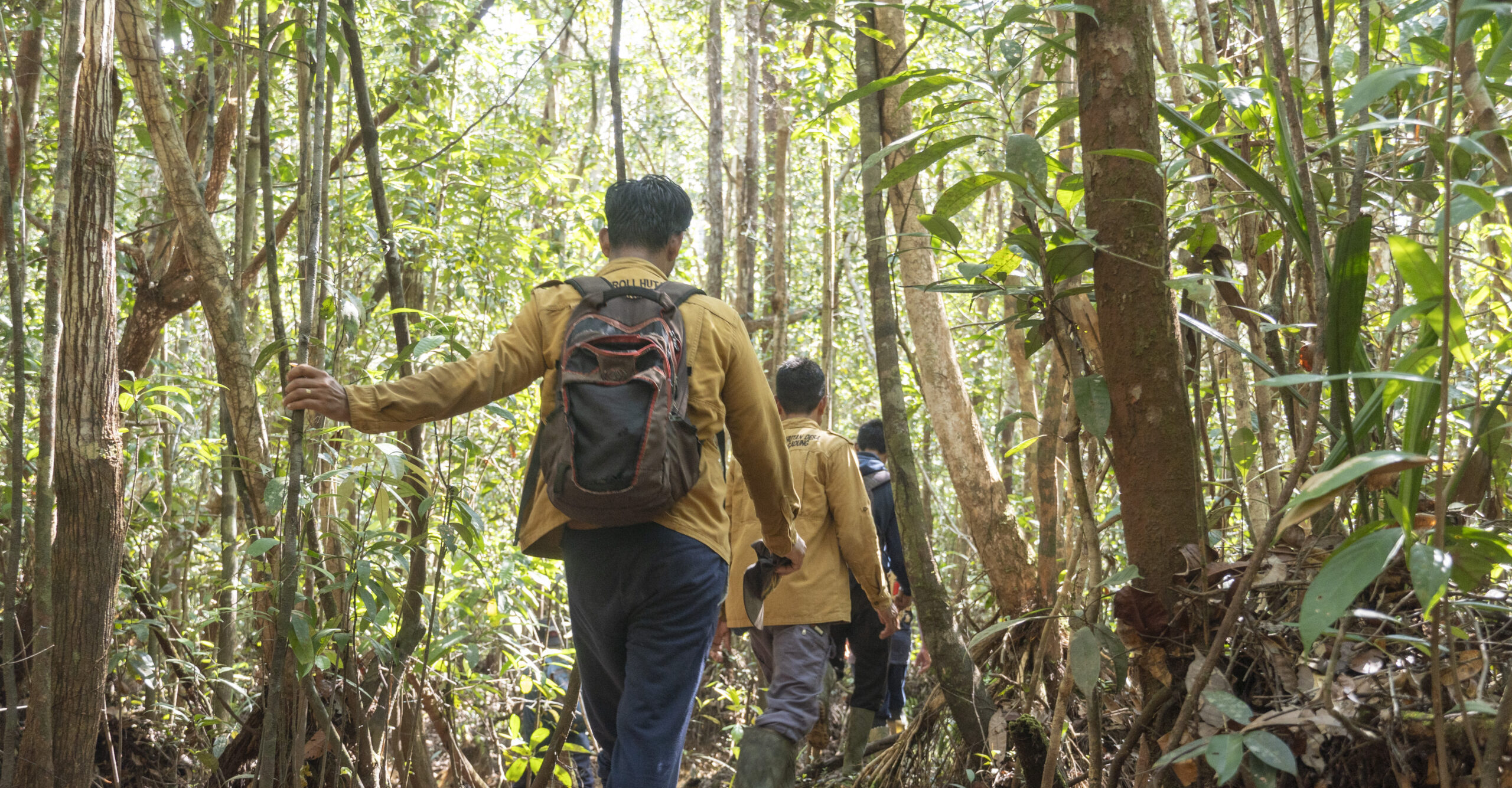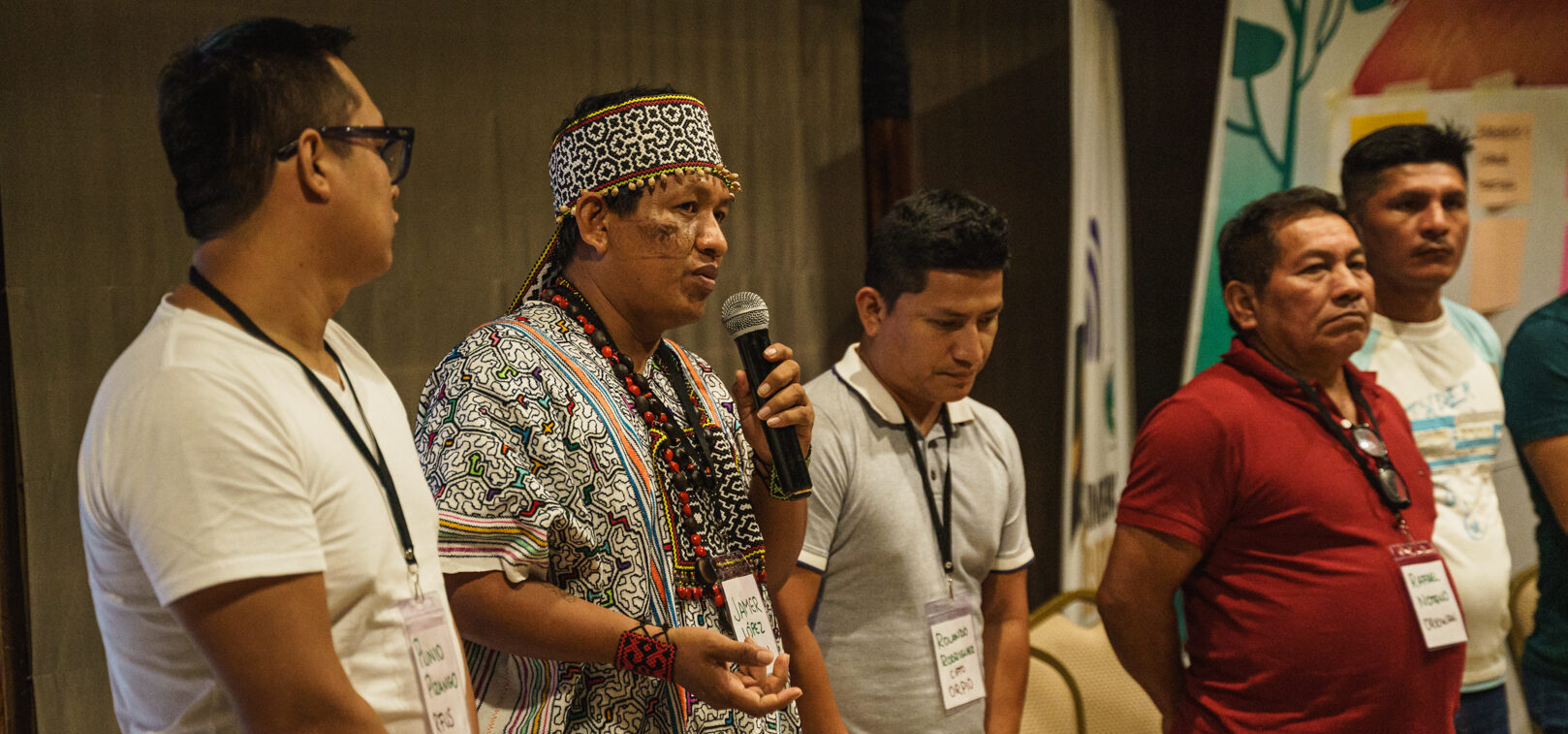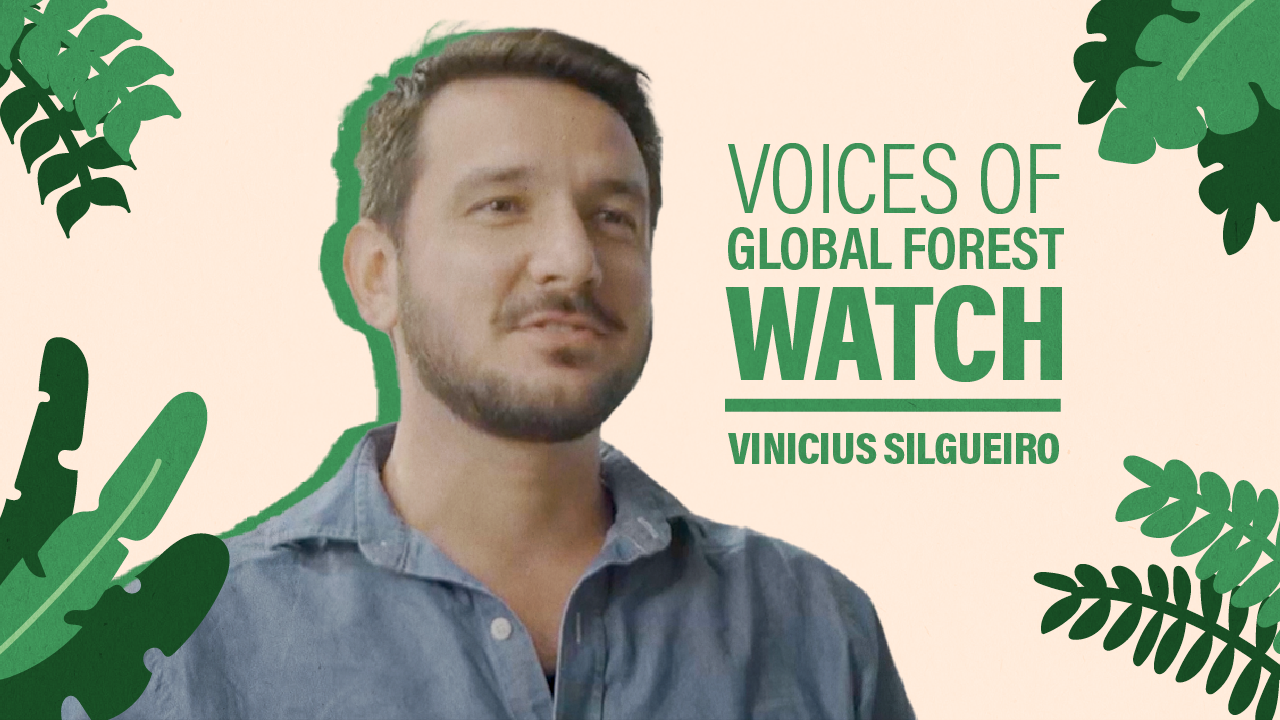- Users In Action
Introducing Global Forest Watch’s 2020 Small Grants Fund Recipients
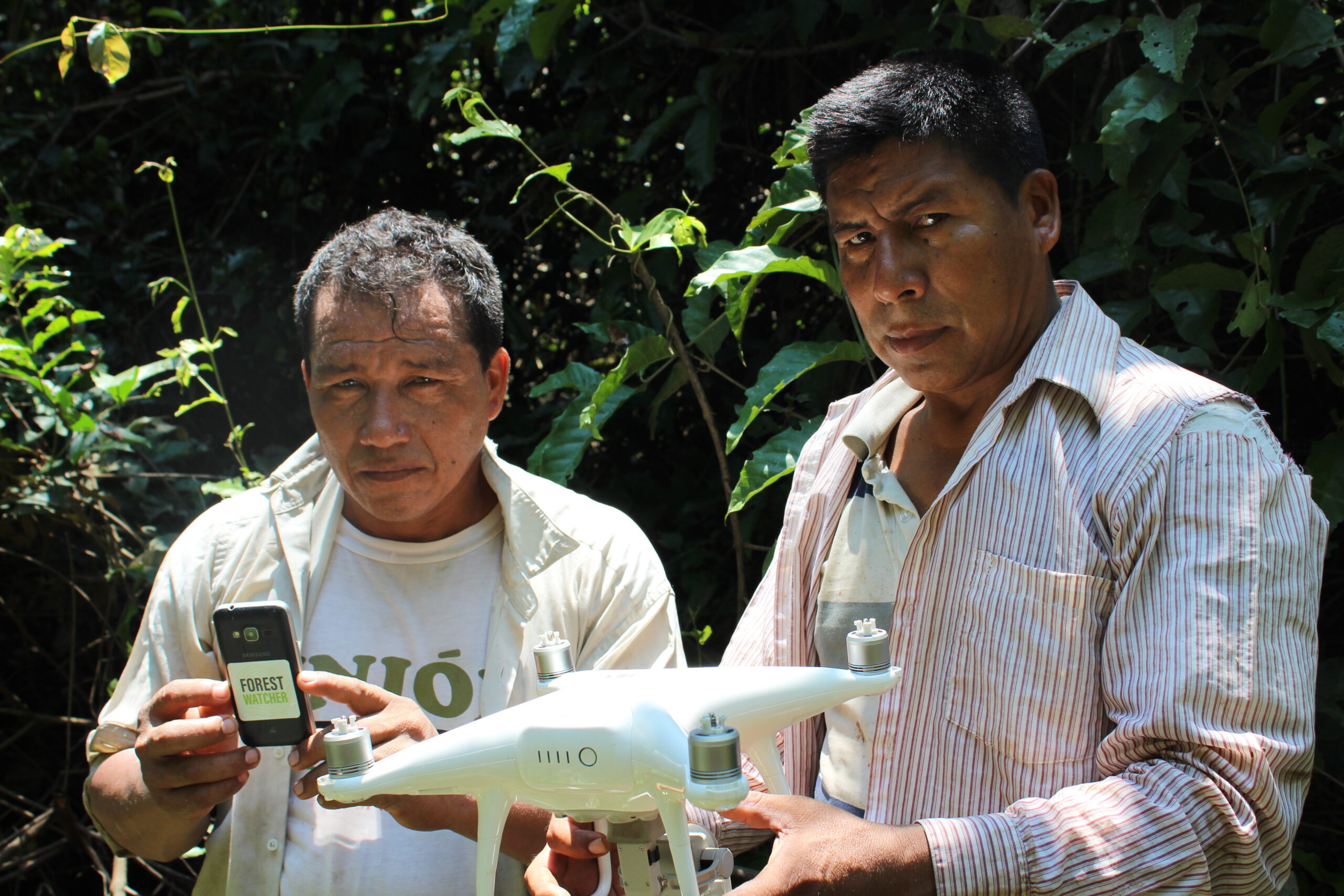
Members of AMPA test the use of drones alongside the Forest Watcher app in Peru. Almendra Massiel/AMPA
Global Forest Watch (GFW) is thrilled to announce this year’s Small Grants Fund (SGF) recipients. Now entering its sixth year, the Small Grants Fund supports civil society organizations around the world applying GFW tools and data to their forest monitoring work. The GFW team reviewed hundreds of applications and selected 13 exciting new projects that will harness the power of local stakeholders to protect the world’s tropical forests through innovation.
The 2020 Small Grants Fund Grantees
The 2020 SGF recipients are a dynamic cohort of organizations dedicated to protecting forest landscapes in South and Central America, Africa and Southeast Asia. This year’s projects apply satellite-based forest monitoring technologies to law enforcement, advocacy, data journalism, civil society monitoring and government response.
Protecting public lands with improved coordination
The complicated dynamics of forest governance are considered one of the main barriers to curbing global deforestation. With multiple agencies responsible for governing forests —even within a single country— priorities can become fragmented, undermining attempts to protect forests. But research suggests that collaborative management between civil society and governments can lead to better forest governance outcomes. Recognizing this, many of the 2020 grantees focused their projects on better coordinating forest monitoring efforts at the local level with regional and national environmental authorities.
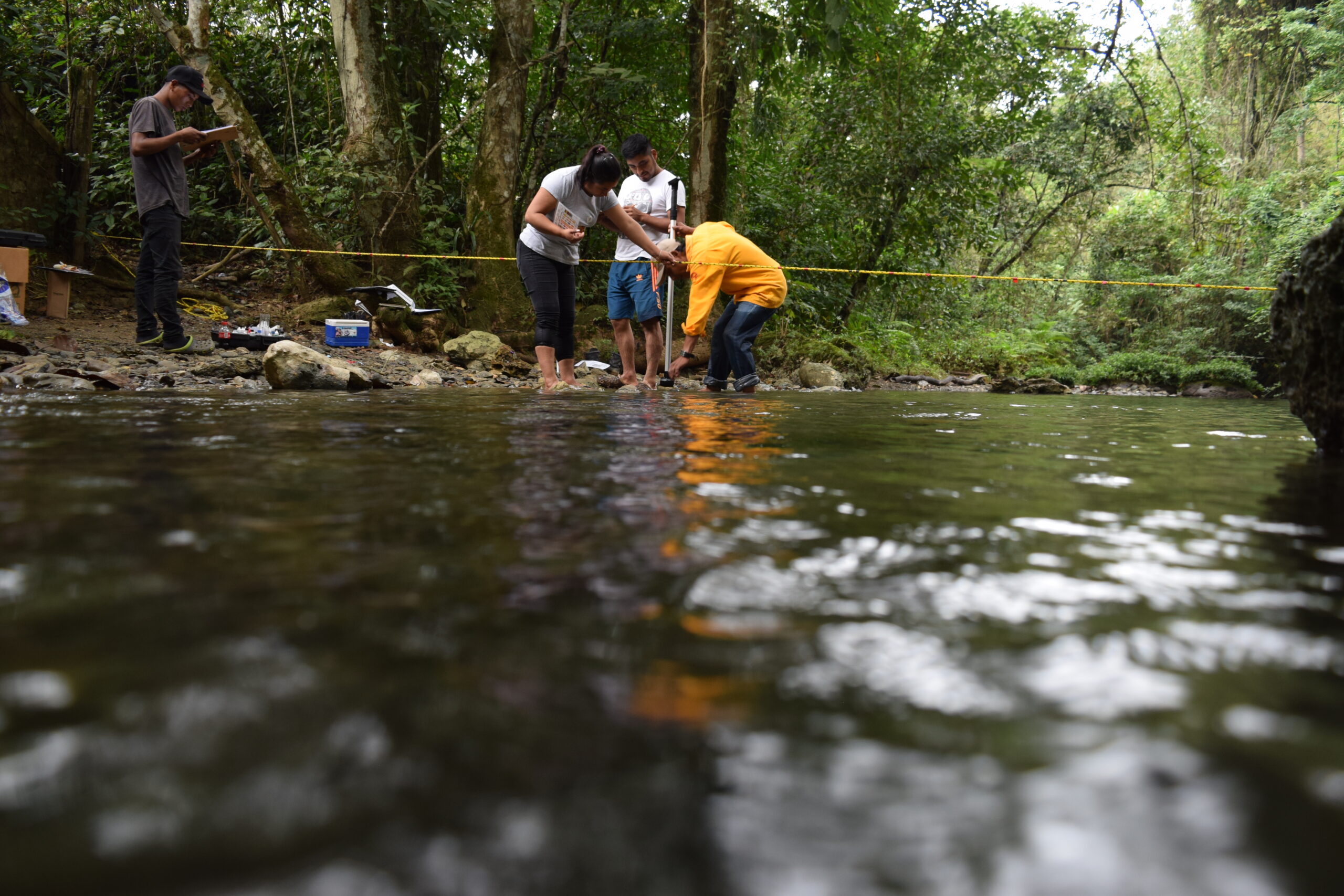 Members of Ambio monitor ecosystems in their communities. Photo by Ambio.
Members of Ambio monitor ecosystems in their communities. Photo by Ambio.In Mexico, Ambio is working with community monitors and state agencies to curb deforestation across 11 protected areas in the state of Chiapas.
Earth Innovation Institute (EII) is supporting the municipal government and local communities of San Vicente del Caguán, Colombia in their efforts to strengthen the protection of the Pato-Balsillas Peasant Reserve Zone.
Genesis Bengkulu Foundation will build forest monitoring capacity and coordinate with local communities and environmental authorities to protect 75,777 hectares of forest in the Seblat Forest Landscape of Indonesia. Also in Indonesia, previous SGF recipient HAkA will continue to support the monitoring capacity of forestry government agencies operating in the Leuser Ecoystem.
The Madagascar-based NGO, Ny Tanintsika, will train local patrollers in 10 community forest management associations to use GFW to monitor deforestation activities in the Ambositra-Vondrozo (COFAV) protected area of Madagascar. In Cameroon, former SGF recipient SAILD will train conservation management units and communities to monitor deforestation threats within Deng Deng National park.
Supporting Indigenous and local community lands
Four grantees are working to protect Indigenous and community lands from deforestation. FAPI will work with the Payipie Ichadidie Totobiegoso (OPIT) Indigenous organization in Paraguay to develop a pilot territorial monitoring system to control deforestation in Indigenous lands, and act as a coordinator for submitting complaints to the relevant environmental authorities.
The Bolivian-based organization, Instituto Boliviano de Investigación Forestal (IBIF) will connect the Indigenous Organization of Native Communities of Lomerío (CICOL) with the country’s forest authority for investigation into illegal deforestation.
In Malaysia, KUASA will be training the Orang Asli Indigenous communities of the Titiwangsa Central Forest Spine to use GFW and facilitating a series of consultations between the Orang Asli and federal and state government authorities.
Preventing illegal deforestation on concessions and privately held lands
Former SGF recipient, AMPA, will continue their work strengthening control and surveillance monitoring systems across 43 conservation initiatives in the San Martin region of Peru. In Brazil, Instituto Centro de Vida (ICV) will train the Mato Grosso Public Prosecutor’s Office (MPMT) to use GFW to curb deforestation and hold landholders accountable for environmental crimes.
Harnessing digital media to expose tropical deforestation
Two grantees are utilizing data journalism and GFW to highlight the negative environmental and social impacts of tropical deforestation. Working in collaboration with the investigative environmental journalism agency, Oxpeckers, Code for Africa will train 10 Central African journalists to use GFW tools and data to investigate deforestation in Cameroon, Democratic Republic of Congo and Uganda and publish a series of data journalism projects on the findings.
 A burned rubber plantation in Brazil. Photo by Avener Prado / Repórter Brasil.
A burned rubber plantation in Brazil. Photo by Avener Prado / Repórter Brasil.Reporter Brasil will build on their previous SGF project to raise awareness of the destructive impacts of pro-development policies proposed by the current Brazilian administration. Reporter Brasil will publish three stories using GFW data to highlight how proposed bills would increase destruction of the Amazon, particularly in Indigenous areas.
Each project will run from August 2020 through July 2021. Check out our grants and fellowships page to learn more about this year’s grantees, the Small Grants Fund program and details on how to apply for next year’s SGF cycle.
